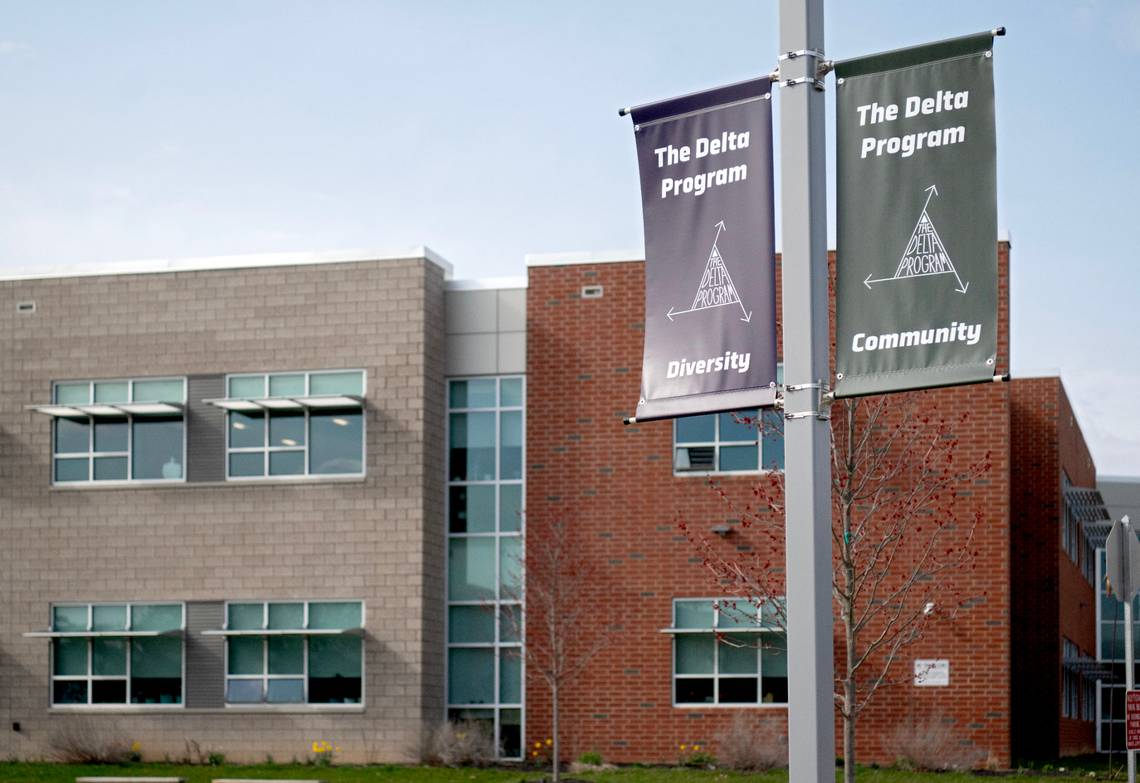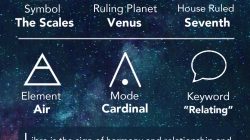New Branding for Delta Program
As the State College Area School District’s Delta Program prepares to transition into its own separate school, committee members and community volunteers are working diligently to enhance its branding and visibility. This shift marks a significant milestone for the program, which has been an alternative schooling initiative since 1974.
The Delta Program is set to split into a middle and high school starting in the 2025-26 academic year. A major step forward in its branding occurred this summer when it received a new wordmark and pair of logos following a months-long development process. These updates aim to reflect the core values of the program while increasing its recognition within the community.
The ‘Mind-Expanding’ Logo
The new logo for the Delta Program prominently features an optical illusion known as a Penrose triangle. This shape, which cannot exist in three dimensions but can be expressed mathematically in five dimensions, was chosen by designer Peter Aeschbacher, an associate professor at Penn State. He explained that the shape is a metaphor for the program’s values: community, democracy, and choice.
Aeschbacher, who is also a Delta parent, emphasized that the design represents the unique combination of these elements. During a recent board meeting, he shared his perspective on the logo’s significance. While one board member jokingly questioned if the optical illusion might make the program seem like an illusion, another suggested the term “mind-expanding” to highlight the magical synergy of the elements.
Delta will use both a formal and an informal logo when it debuts as a separate school. The formal version will appear on signage, letters, and paperwork, while the informal one will be used on apparel, car magnets, and other items.
Community Involvement in Branding
Earlier this year, a dedicated branding subcommittee worked with students, faculty, staff, and families to gather input on the new branding. They conducted focus groups, workshops, and voting rounds to select the winning concept. Kristen “Dot” Burnett, a Delta teacher and subcommittee member, highlighted the importance of community involvement throughout the process.
“The whole entire process, we tried to keep in mind that this was something representing our community,” she said. “Our community’s voice and needs and vision had to be well represented throughout.”
Pursuing Magnet School Designation
In addition to enhancing its branding, Delta officials are also working to pursue federal designation as a magnet school. This could help attract more students and support a more diverse range of educational offerings. The U.S. Department of Education defines a magnet school as a public school that offers a special curriculum capable of attracting students from different racial backgrounds.
Delta’s newly formed magnet school subcommittee has proposed a theme centered on “modeling, participating in and teaching democracy.” This aligns with Delta’s existing model as a democratic school of choice for the past 51 years. Leah Mueller, a Delta teacher, explained that the transition from a program to a school presents a great opportunity to become a magnet school.
“We thought this transition would be a really good opportunity to become a magnet school because we’re already operating as a magnet school in many ways,” she said. “It also allows us to provide that essential school of choice that would be open to all grade-eligible students.”
Benefits of Magnet School Status
Achieving magnet school status could significantly improve Delta’s visibility within the district and attract more students. Erica Frankenberg, a professor at Penn State, noted that magnet schools typically have active recruitment plans, ensuring that all eligible students are aware of the opportunities available.
Board member Peter Buck, a former Delta student, supported the pursuit of magnet designation. He believes that codifying Delta’s unique qualities will help reinforce its identity within the district.
Future Steps
Planning and implementing magnet school designation can take several years, according to the U.S. Department of Education. Delta officials have not yet provided a timeline for their pursuit but plan to use the Magnet School Development Framework as a guide. Updates will be shared with the school board and administrators in the future.
Delta received approval in May 2024 to separate into its own middle and high school. This move aims to provide more accurate state testing data that are not mixed with other schools in the district. The program, which features a shared leadership model, smaller class sizes, and flexible scheduling, is available once district students reach the sixth grade.







